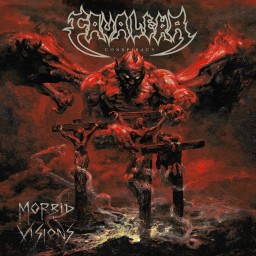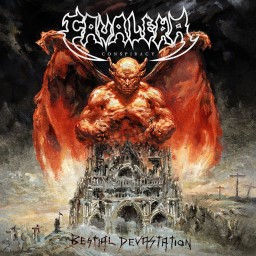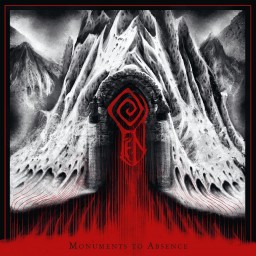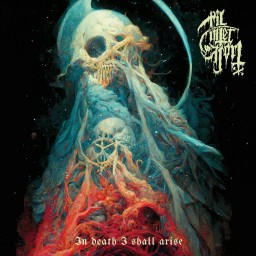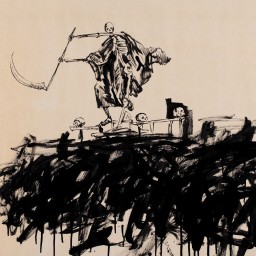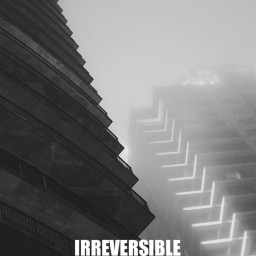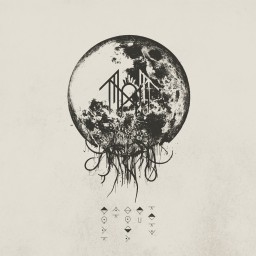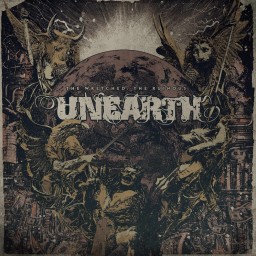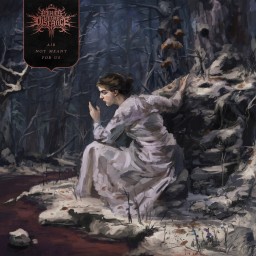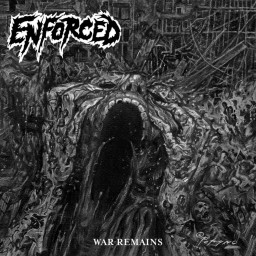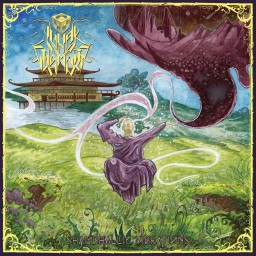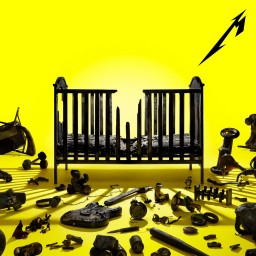Saxy S's Reviews
I was quite surprised to say the very least when I saw the glorious amounts of praise that reviewers were giving to the newest Suffocation album; their first in nearly six (6) years. This New York based tech-death outlet are considered one of the finest in the circle and helped to brutalize death metal far beyond its earliest iterations. But this new record, Hymns From the Apocrypha is the first to not feature longtime vocalist Frank Mullen. That honor now belongs to Ricky Myers and upon first listen I was not impressed. The new vocal timbre is incredibly overplayed and emotionally dull. The guttural howls are instantly forgettable and would fare more positively if they actually grew into something instead of being played in a safe, monotonous tone.
Okay, so the vocals on a tech-death album don't sound great, so what? No one is listening to Suffocation for their nuanced political positions. How does the music compare? Well honestly, not much better. Suffocation have always had top notch performances and pin point production on their previous records and even though I've never liked this side of death metal, I could always respect Suffocation for that. But, on Hymns From the Apocrypha, we have gotten to the point where this band could release anything and they would expect listeners to eat it up based on namesake alone. This record is littered from top to bottom with levelling issues and peaking in the mix. Anytime the guitars drop out for a brief period of time, and all that's left is a held guttural or on rare occasions, a bass break, the return with the percussion always sounds bloated and the mix blows up. I seriously wonder how many times this had to go through post-production and no one thought to question these atrocious transitions. And this happens several times! And on an album that is as brutal as this, with so much cacophonous noise happening continuously for over forty (40) minutes, the breaks become that much more noticeable, with the release afterwards becoming more painful each time.
When Suffocation are playing at that high octane level, Hymns From the Apocrypha sounds fine I guess. The guitar solos are a nice divergence away from the constant tremolo guitar picking and allows for some harmony to exist between the rhythm guitar and bass. Otherwise, the bass is only a formality as it just doubles the rhythm guitar with the amplifier at the lowest possible volume. And, despite the mixing, Suffocation are still keen performers and the heaviness is performed with a lot of detail and precision. But polishing a turd does not make it less of a turd. I wanted to give the new Suffocation album a chance because I've never clicked with this group before and a new album with lots of critical acclaim seemed like a good a place as any. But, even with my limited knowledge of brutal death metal, I can tell that this record is not great. Perhaps this is more solidification that Suffocation are not a band for me since they are now firmly in the "legacy band" territory. But even by those standards, I'm not sure they are deserving of that title.
Best Songs: Perpetual Deception, Seraphim Enslavement
Genres: Death Metal
Format: Album
Year: 2023
Spiritbox wax never going to be iwrestledabearonce. Hell, even IWABO wasn't IWABO by the time Courtney LaPlante and Mike Stringer joined the group for 2015's Hail Mary. So in a way, watching Spiritbox go from progressive metal from the debut EP with songs like "The Mara Effect" and transform into this more pop centric sound isn't surprising.
When I listened to Eternal Blue, I did enjoy the direction the band was taking, but also felt far too much like a grab bag of modern metalcore trends rather than sounding like Spiritbox. And on this new album, I can confidently say that nothing has changed.
This little EP comes packaged with three decent made for radio alternative metalcore songs with "The Void", "Ultraviolet" and "Too Close / Too Late", two heavy bangers that will please the breakdown reaction video makers with "Cellar Door" and "Angel Eyes". And then there is "Jaded", which is the kind of hybrid that "Circle With Me" wishes it could be; a very solid track and likely the best on the EP.
As individual songs, I do think that The Fear of Fear is pretty good. Every song feels like a completed idea and Spiritbox know their sound and creative limits so as to not detract from the EP's strengths. As a whole however, Spiritbox are still stuck in creative limbo trying to appeal to as wide a audience as possible with as many differing timbres and styles that honestly don't fit as well together as I would have liked.
This can be extremely dangerous for a band since it can spread their audience quite thin. I think that on an EP like The Fear of Fear is one of the best places to play around with this because of the length, as opposed to a full length LP. But, since Spiritbox are doing this again following the debut full length, maybe this is the residual mist being left behind from the IWABO days that Spiritbox wants to maintain. And I'm not sure it's going to work the best for them in the future.
Best Songs: Jaded, Cellar Door, Ultraviolet
Genres: Alternative Metal
Format: Album
Year: 2023
With The Surface being my first exploration of Beartooth's music, I can't say that I was very excited about he thought. I had heard the name Beartooth thrown around in popular hardcore/metalcore circles, but they never really interested me all that much, likely due to the fact that I was head, neck and probably arms deep in a progressive wormhole at the time, and the thought of some very barebones, mosh-y hardcore music was not near the top of mind.
Well it's 2023 and Beartooth are still relatively popular. So much so that the band has cleaned up their sound and gone full radio friendly with their hardcore sound. The mixing of this record contains almost no reverb effects, which does come with its own drawbacks. Primarily, the whiplash dynamic change during the pre-chorus of "What's Killing You". On the positive, the promotional singles "Sunshine!" and "Riptide" are mostly solid and I did enjoy the title track as well.
Unfortunately this album is remarkably stale. Despite the more accessible nature of it, The Surface still feels like a very barebones and sanitized record. This is one of the more egregious examples of a metalcore band not willing to develop their sound beyond what made them popular many years ago. I cannot even say that it feels transitory because the slower, emotional tracks near this albums end are familiar to metalcore fans, as both Sleep Token and Bad Omens have tried this before to more positive results. The album claims to be more optimistic, but there is still a considerable amount of vocal whining and complaining, which at this point in metalcore, has not just become boring, but annoying.
The Surface exists. If you like Beartooth, then there is no reason why you would not enjoy this assortment of meat and potatoes metalcore. But even the metalcore circles I frequent hold this album out at a distance for its more pop tendencies. We're just hoping this band will dig a little deeper.
Best Songs: Sunshine!, What Are You Waiting For
:
Genres: Alternative Metal
Format: Album
Year: 2023
Rock music was at a turning point during the 1970s thanks in large part to the massive contributions to the genre by a quartet of blokes from Liverpool. Most people remember the Beatles in one of two ways; either as the pop rock group selling out arenas around the world to a swathe of young people, or as the psychedelic band responsible for Sgt. Pepper's Lonely Hearts Club Band, a record consider by music historians/critics as one of the most important albums of all time. For the purpose of this review, we are going to focus on that psychedelic side of The Beatles, specifically, the song "Helter Skelter" from the 1968 self-titled album (or the White Album). It is a marvel to hear the band responsible for such radio friendly pop rock songs as "A Hard Day's Night" and "I Want to Hold Your Hand" would make a tune as ruckus as this and have it be received as well as it did.
It is sometimes considered one of the first examples of a hard rock song, alongside the Kinks "You Really Got Me". Beyond 1968, their came into prominence a lot of artists looking to replicate the more aggressive side of The Beatles late work instead of the more radio friendly soft rock. And one of those bands was Deep Purple. In Rock is the bands third studio record and a real proto-metal album. The heavily distorted guitars and driving percussion are nearly unmistakable from the heavy metal formula that developed with Black Sabbath around the same time as this album. However, unlike Black Sabbath, Deep Purple have an obvious affection to the jam band style with lots of extended guitar and organ solos while not being super dark or oppressive; it is much closer to that of Led Zeppelin's sound that would come later. You could even make the claim that Deep Purple were digging deeper into the wormhole of psychedelic music than even the Beatles themselves.
And the results are phenomenal. I have always enjoyed the mixing and the execution on In Rock and listening to it again was no exception. The use of complimentary song styles and song lengths works wonders for this record as "Speed King" and "Into the Fire" are gigantic soundscapes with great choruses and hooks, while the longer tracks, especially "Child in Time", are calm and wind the listener back up into a frenzy; the joint guitar/organ solo halfway through "Child in Time" is so well implemented, before the band drops the tempo and dynamics right back down to where they were at the beginning of the track and then do it all over again! It's a literal clinic in long song structure and it's gone over the heads of way too many later progressive rock/metal bands who would much rather follow the Dream Theater approach of being quirky for its own sake and that's never worked for me.
Actually, parroting off of the point, it's amazing how much more recent metal music does take influence from Deep Purple In Rock. For starters (and likely the most direct influence) is the drum fill that concludes "Flight of the Rat", which is just the exact same outro solo on Judas Priest's "Painkiller". Or the slower, almost doom metal riff on "Into the Fire" that you might have misinterpreted if it wasn't for Ian Gillian's higher vocal timbre and wails. Deep Purple In Rock is an experimental album that keeps itself grounded and proves to be a remarkably influential album as well. It understands the rules of 1960s hard rock and then mutates them in ways beyond comprehension at the time. And that mutation would lead the band further on down the road to Machine Head, which is one of my favourite albums of all time. I wish more bands understood this today.
Best Songs: Speed King, Child in Time, Flight of the Rat, Into the Fire, Hard Lovin' Man
Genres: Non-Metal
Format: Album
Year: 1970
I'm in a weird place when it comes to industrial music. I was recently introduced to the world of electronic body music [EBM] and while I could (and probably should) enjoy the heavier side of that genre present in aggrotech, I find myself more at comfort with the futurepop and alternative pop sounds instead. As a result, my explorations of the metal side of industrial music has been a complete blind spot (once again) in 2023.
So when I received my copy of EndEx by industrial band 3TEETH, I had to hinder my expectations since it was in a style that I have been struggling with for quite some time. So what did we get out of EndEx?
While the tracks featuring Mick Gordon are certainly produced much better than the solo tracks "Xenogenesis" and "Plutonomicon", they are also the songs with the least happening in them. The guitar has a lot more punch and gravitas when Mick is present, and typically also have more memorable melodic ideas and phrases. Tracks like "Higher Than Death" on the other hand sound like made for radio industrial metal, as the glitchy production is swamped in favour of power chords and Breaking Benjamin vocal hook.
EndEx is quite a diverse listen in its timbre. The record certainly has its fair share of aggressive moments like "Paralyze" and "ALI3N", but the record ends with the slower "Drift", which has more of a futurepop sound with less guitars and distorted vocals. And regardless of the quality of the bands cover of "Everybody Wants to Rule the World" by Tears for Fears, I was impressed by how 3TEETH were able to take fundamental chord progression, turn it minor without changing the main vocal motif and make the song their own, rather than a straight cover with no thought or unique traits.
When it was over, I respected 3TEETH, but I did not love EndEx. Some of the songs here are just catchy enough to bring me back for more, but the disconnect between the solo tracks and those featuring Mick Gordon make for a divisive full playthrough. Still, some of these tracks will make for a nice detour from my typical industrial listening.
Best Songs: Acme Death Machine, Merchant of the Void, ALI3N, Paralyze (feat. Ho99o9)
Genres: Industrial Metal
Format: Album
Year: 2023
A new album from Thy Art Is Murder and, perhaps surprisingly, another album that does not include CJ McMahon. That statement may contain more layers than anticipated because the replacement (Tyler Miller or Aversions Crown) was revealed as this albums principal vocalist a single day before the albums release. CJ's vocals were recorded and was promptly kicked out for making controversial statements.
The other reason why it might be surprising has to do with Miller filling in admirably with a vocal timbre that very similar to the former vocalist. At first, you might not even notice that this isn't CJ McMahon's vocals at all. I would go so far as to say that Miller's vocals are superior to that of CJ's with an increased focus on dynamic range. Already we're off to a great start. Until you actually listen to Godlike and realize that it's yet another Thy Art Is Murder album. Nothing about this record demands the attention of the listener as it comfortably falls into a groove without much semblance of growth. The lead in to the breakdowns on "Lesson In Pain" sound identical to "Reign of Darkness" from ten years ago and the breakdowns themselves don't fair much better. Sure, The Aggression Sessions that TAIM did earlier this year alongside Fit For An Autopsy may have given the band a little bit of a rub as "Destroyer of Dreams" and "Corrosion" have elements similar to Fit For An Autopsy, minus the more progressive songwriting, but it's hard to differentiate this from the bands other LPs. Their is only so much that these "melodic deathcore" bands can do before their sound becomes stale without going full-on progressive metal; hell the same thing can be said for its parent genre, melodic death metal. I'll give Godlike a pass for not being a complete technical abomination. When it comes to modern deathcore, you could always do a hell of a lot worse than Thy Art Is Murder.
Best Songs: Join Me In Armageddon, Destroyer Of Dreams, Lesson In Pain, Corrosion
Genres: Metalcore
Format: Album
Year: 2023
Nu metal gets a bad reputation from a lot of people and you know what....those people are probably right. I often feel like one of those "born in the wrong generation" kids who grew up with nu metal throughout the late 1990s and early 2000s, but into my adult years find myself staying far away from nu metal with very few instances to the contrary.
So I was quite worried upon hearing Code Orange's new album The Above for the first time. Gone are many of the bands more traditional metalcore traits of Forever and Underneath as they continue to embrace more industrial techniques. And the result is a mixed bag. I will not go so far as to call The Above bad, but Code Orange sound like they are in a creative rut and are trying anything possible in hopes of reclaiming that "it" factor.
This album turned out to be a frustrating listen as it ping-pong'd between a heavier sound (closer to Tallah), and industrial metal circa Static-X. The Billy Corgan featured track, "Take Shape" even has a few ambient passages that reminded me of an early Nine Inch Nails. And as I found myself initially not feeling comfortable with the more pop friendly tunes, they actually turned out to be a lot better than the heavier rumps of "Never Fall Apart" and "The Game". Maybe it was the vocal timbre, perhaps it was the smoother incorporation of the glitchy percussion.
When the album's at its best, it has some pretty good choruses, while Eric and Reba's dual vocals provide songs with a sense of dialogue. When The Above is at its weakest, the glitchy percussion takes over and the harsh vocals are delivered with a childish flare. Overall, this new direction for Code Orange is not what I expected when I listened to Underneath, and the result leaves me feeling confused more often than not.
Best Songs: Take Shape (feat. Billy Corgan), Mirror, I Fly, Splinter the Soul, Snapshot
Genres: Alternative Metal
Format: Album
Year: 2023
The first two tracks off of Almost Human left me with a false sense of security as they certainly felt closer to a melodically driven form of death metal that I really did enjoy. That security was thwarted with "Spine Shatter High-Velocity Impact" as the slamming, brutal death metal that Wormhole really are and while it did leave a negative impression at first, as the album continued, I came to realize just how solid these songs were. Good ideas with some semblance of connectivity between the different sections. The pummeling death metal was intense and mixed very well. The vocals are the biggest turn off for me as they are performed with Cookie Monster aesthetic and leave me with a typical feeling of "well these clearly did not need to be here!". The album ends with a phenomenal return to the more melodic side with "The Grand Oscillation" and saves the record from feeling like a relentless assault of noise. The album runs remarkably short as well to its benefit. A great find and a welcome addition to my very small brutal death metal collection.
Best Songs: System Erase, Elysiism, Almost Human, The Grand Oscillation
Genres: Death Metal
Format: Album
Year: 2023
Another piece of Canadian thrash metal to indulge in and this time we are diving back into the world of Megadeth wannabes. Right out of the gate, I'm less than impressed. Trample the Weak, Devour the Dead is a full on thrash metal assault with very little room to breathe or any sort of direction. Pretty much the entire record falls into a very simple formula of ideas whose order of appearance is fully dependent on the corresponding tracks. These motifs are performed relatively well, but without any sense of direction, these eight (8) songs can get pretty repetitive quickly. I for one, was excited when I heard the softer guitars begin "Grinding the Blade" as I was expecting something closer to "A Tout le Monde", however once the intro had run its course, the track reverts back to the same tired thrash beat that we've already heard plenty of times before. In addition, the strong opening "Trial by Combat" is not matched again in its punchiness and memorability for the rest of the album, instead opting for more of the riffage for maximum adrenaline. As a whole, this album feels like wasted potential and can comfortably go into the bin of nostalgic thrash bands that I have no interest in exploring further.
Best Songs: Trial by Combat, Bones of the Slain, Death and Decay
Genres: Thrash Metal
Format: Album
Year: 2023
When I discovered Tomb Mold back in 2018, it was only the beginning of my discovery of old school death metal. And while I still think that Planetary Clairvoyance is a very good piece of music, it has lot a lot of favour with me in the years since. And you can probably guess at this point as to why that is: 20 Buck Spin. On the laundry lists of albums to drop in the OSDM style out of that record label, a large portion of them are very familiar and don't have nearly enough to separate them.
However, alongside the recent VoidCeremony album earlier this year, Tomb Mold have gone hard into the progressive songwriting techniques. And this change in style has resulted in The Enduring Spirit, which gives the band a more unique sound, but unfortunately falters in places that have come to be expected in progressive metal in the present.
For Tomb Mold, their cosmic concepts to previous albums has carried over into The Enduring Spirit, and now you can hear the spatial elements, not just in the words, but also the instrumentals themselves. As "Will of Whispers" and "Servants of Possibility" both have clean guitar leads with reverb interspersed amongst the pummeling death metal. I also noticed that Tomb Mold have many more technical passages on display with its heavy use of the blast beat. I figured that these two styles would be at odds with one another and that did turn out to be the case; one moment you're being drifted away by lovely atmospheric passages, only to be bombarded with blast beats, unintelligible lyrics, and blistering guitar solo.
On its own, this is an issue that persists throughout progressive music; where individual songs feel like two (or more) isolated ideas forced together in order to boost up those song lengths. It does not happen too often on The Enduring Spirit, but it is noticeable, especially on the album closer, "The Enduring Spirit of Calamity". The song begins as any other Tomb Mold song on the album does, before slowing down into a post-metal instrumental with a guitar solo lead instead of a vocal motif. On their own, they don't seem like bad ideas, but when hammered together, they don't feel complimentary. And serving as the albums eleven (11) minute closer kind of feels like a disappointment. Otherwise, the remaining six (6) tracks can be hit or miss, but Tomb Mold show some restraint by not allotting more time to these ideas than they would on previous albums. The record does flow smoothly and Tomb Mold do not feel as if they are running out of gas by the time "The Enduring Sprit of Calamity" arrives.
This change of direction for Tomb Mold comes with its fair share of positives, but also some net negatives as well. While the album is more diverse and unique in comparison to the wide array of OSDM acts I've heard in recent years (most of them on the 20 Buck Spin label), it also has to play into some very tired progressive metal tropes that I am not a fan of to begin with. I can see those who are more familiar with Tomb Mold's older style of death metal really enjoying this, but those looking to approach this from a purely progressive angle might find it more frustrating.
Best Songs: The Perfect Memory (Phantasm of Aura), Will of Whispers, Servants of Possibility, Fate's Tangled Thread
Genres: Death Metal Progressive Metal
Format: Album
Year: 2023
I've been listening to progressive metal for quite a long time and it's becoming more and more frustrating to hear the modern djentification of the genre. Not because it's bad per se, but rather because of how poorly it's presented. Most modern djent acts use the exact same bad compositional and engineering mistakes that are littered throughout metalcore. So it's kind of nice to hear an album that doesn't sound like its was mixed from the inside of the percussionist's bass drum. War of Being is a expertly produced album that still maintains the exact tropes that one would expect out of djent-y metalcore. The record's performance is precise and punchy and TesseracT have done plenty of experimentation to differentiate it from other, more comfortable acts like Veil of Maya. The compositions are well crafted; it does fall a little flat at times, especially in the lyrical content as well as the title track that feels like its running on just a tad longer than it should. But "Natural Disaster" is one of TesseracT's best performances, and "The Grey" and "Legion" are superb as well. As it stands, War of Being will likely turn out to be 2023's best "conventional" djent album, even though that might not mean much coming from me. Take that for what it's worth.
Best Songs: Natural Disaster, The Grey, Legion, Sirens, Sacrifice
Genres: Progressive Metal
Format: Album
Year: 2023
The first full length album from Baroness since 2019, and the first to not feature colours in the album title. That should be enough to alert longtime fans of this group that this will be a bit of a departure from the bands familiar stoner rock/metal sound.
Well, calling STONE a dramatic departure might be a bit of an exaggeration. The heavier aspects of Red and Blue albums have returned instead of the more tranquil Purple album, and many of the mixing issues that I had with Gold & Grey have all but disappeared. It makes STONE into a very nice record that feels comfortable, but also unique in certain places.
However these unique aspects are not necessarily for the best. I can immediately think of the unbroken trifecta of tracks "Beneath the Rose", "Choir" and "The Dirge" in its presentation. "Beneath the Rose" has its own problems with the way the galloping guitar riff is mixed, but "Choir" feels like a half formed idea, while "The Dirge" acts more as an interlude than anything useful to the previous two acts.
The rest of the performances are usually well done. I really enjoy the multi-vocal layerings on "Last Word", "Shine" and the closer "Bloom", the guitar work, while spotty, is very tasteful and acts independently from the bass, while the percussion is quietly robust and impactful. Normally when you hear technical percussion (especially on heavier metal albums), it can sound flat-footed and the blockiness of the kick and snare drums distracts from the important melodic songwriting, but Baroness do not have that problem here. The only real issue is the albums structure. The songs "Anodyne" and "Bloom" are both very good, but these shorter tracks cannot compare to the records longer, jam-esque songs like "Last Word" and "Shine".
STONE almost feels transitory, but I'm not sure if that was Baroness' intention. It's a mixture of all things Baroness throughout their Colours album saga; refining the lesser aspects of the double albums (Yellow & Green and Gold & Grey) with the more direct Red and Blue albums. It's a formula that should work, but I don't think I enjoy STONE as much as Baroness' best.
Best Songs: Last Word, Anodyne, Shine, Under the Wheel
Genres: Progressive Metal Stoner Metal
Format: Album
Year: 2023
None So Conflicted
Did we really need a return of Cryptopsy? I don't ever remember hearing much clammer for a comeback from this band in the same way that I have for other metal bands in recent years. Once a staple in the world of brutal death metal, Cryptopsy starting showing signs of weakness at the turn of the century, but continued to pump out very forgettable death metal albums until the bands self titled album in 2012.
So it's been over a decade and with that kind of layover you would think Cryptopsy might try try something different with their newest album, As Gomorrah Burns. Well here's the thing: they didn't. Even by my very low standards when it comes to brutal death metal, I can sense that this is an inferior quality record and was not worth wasting an iconic name such as Cryptopsy by association.
It's really painful to hear "Godless Deceiver" and "In Abeyance" and wonder why the mixing on this record is so lousy, even though the band has been given a 2020s coat of paint. The guitar riffing is so damn muddy and much of the percussion work is exactly the same. Now maybe some listeners won't mind as much since even the earliest Cryptopsy albums were very sloppy, almost like first draft performances, but when the chugging guitar riffs clip the mix, it sounds even more amateur than normal.
If their is one thing that As Gomorrah Burns does have going for it, it's the vocals. Those always turned out to be the least enjoyable part of None So Vile since it generally turned into an inaudible mess. Here, they are performed with some diction and syllables can be recognized without having to consult a lyric book. Even still, they don't have a lot of variety in their execution so they once again turn into background noise; not a huge deal since Cryptopsy are not known for their intelligent lyrical genius. This means the instrumentals have to do some heavier lifting, which comes with its own set of problems.
I know my mileage with brutal death metal is limited, but even I know what Cryptopsy is and what they have become. As Gomorrah Burns turned out to be a very weak addition to the bands late catalogue and doesn't even have Dying Fetus' cleaner performances to help it out. I mean, maybe if you like the more punk aesthetic of hardcore, brutal death metal, you might get a kick out of this, but you can do way better than Cryptopsy in 2023.
Best Songs: Lascivious Undivine, Flayed The Swine
Genres: Death Metal
Format: Album
Year: 2023
It's like a Ron Jarzombek album, but intended to be taken dead seriously. The album has character and tells a story, but the fragmented song structure kneecaps any sort of momentum or growth.
Genres: Avant-Garde Metal Progressive Metal
Format: Album
Year: 1998
Yeah I know: cue the whole "Brutal Death Metal ain't my thing" monologue that I've spewed many times on this website, but I'm always open to exploring outside of my comfort zone. Perhaps it is not the smartest idea for me to begin my exploration of this subgenre with a band as complicated as Dying Fetus. The bands 2012 album Reign Supreme is currently featured in one of the Horde clan challenges and are widely regarded as one of modern metal's best example's of the subgenre.
And certainly following the bands previous studio album, Wrong One to Fuck With, the band are much more technical with their song structures rather than employing blistering tempos for an entire album. They seem to have pulled back on the relentlessness here (as if the more modest album title was not enough of a hint), and it does give the album a little bit of extra life...not much, but it's a start.
Because of its more tech-death leanings, Make Them Beg for Death is a much cleaner album than any previous Dying Fetus album I've ever heard (which isn't much mind you). Every note being played by the guitars and percussion is accented with precision and purpose. It almost makes the album feels mechanical at times; perhaps part of the point. I thought the reason it was called "technical" death metal is because it did not sound like a human could play it with such precision. Bands like Allegaeon have this occur a lot, but where those two bands differ is in the songwriting. While Allegaeon use tech-death to compliment melodic leads, Dying Fetus only have the tech-death precision.
I would imagine for some, the cleaner production would be a major turn-off for the more true death metal fans. On the other hand, this quasi pivot towards tech-death/progressive metal might not be received well either, since the record's relentless nature leaves very little room to breather either for the listener, or the performers. I see myself comfortably falling into the latter of those two descriptors. The cleaner mix is an interesting choice and does make for a more enjoyable listen than other Dying Fetus albums, but my progressive background leaves me feeling like I'm being suffocated. Perhaps that the point, but the result might not be the same as what the band intended.
Best Songs: Feast Of Ashes, Unbridled Fury, Raised In Victory/Razed In Defeat
Genres: Death Metal
Format: Album
Year: 2023
20 Buck Spin has become a record label that I tend to explore with mild trepidation. While I cannot deny that they consistently distribute solid modern metal bands with an old school approach, much of it has started to become stale. Many of the labels death metal records have very similar tropes to them that cannot be overlooked and it does make much of their recent output a lot less interesting than if I was listening to it for the first time. Case in point, VoidCeremony. While much further towards the technical side of death metal than a band like Tomb Mold, something about the production of the record cannot help but make some very clear parallels.
Perhaps it comes through in the compositions, which are typically well done, but also rely heavily on played out death metal tropes; such as guitar pinch harmonics, whiplash tempo/style changes and Cookie Monster vocals. These are not necessarily bad on their own, but when put together, they give Threads of Unknowing a sense of comfort and familiarity that I don't think VoidCeremony would want. The album does have a heavy emphasis on bass leads instead of simply doubling the guitar riffs, which I certainly approve of. If there is anything that will make this album stand out in comparison to its label companions, it will be this. Having a technical death metal band such as VoidCeremony incorporate Ne Obliviscaris type polyphony into their music is a welcome treat. The closing track is also quite interesting as well. Even though it does suffer a bit from tempo/style whiplash, VoidCeremony have done a good job of creating a progressive metal epic that stays the course feels like a completed idea instead of a fragmented piecemeal.
Of course these bass lines would not as focal to the album as it is if the production was lousy. And while the guitars do have some great chunk to them, they never feel overpowering. In fact, I would say that the main guitar riffing is almost secondary to the bass lines. The band does find room to fit in a couple of blistering guitar solos throughout the album as well and they do a great job of peaking a listeners interest by having that drastic change in timbre without losing any of the song/album momentum. The vocals are... well they are very gargled and take a lot of pointers from Tomb Mold and Tzompantli in that regard. These vocals just do not interest me and are the aspect that I think most casual listeners will pick up directly as a "20 Buck Spin trope".
Threads of Unknowing is not a bad record, but I think it could have been more than what its trying to be. In the vein of progressive death metal, VoidCeremony have chops and decent influences to draw from, but in terms of its execution, it lacks character. This is by no fault of their own in my opinion, but perhaps VoidCeremony would benefit from digging into their progressive influence more; I could see this band taking a solid page out of In Mourning's playbook and do something really special. For now, keep this band on your radar if you like any style of progressive death metal.
Best Songs: Writhing in the Facade of Time, Abyssic Knowledge Bequeathed, Entropic Reflections Continuum
Genres: Death Metal Progressive Metal
Format: Album
Year: 2023
I have not listened to a lot of Asking Alexandria. Even during my adolescent years when metalcore was dominating the Warped Tour scene, Asking Alexandria was one of those bands that I could never enjoy. And it's hard for me to figure out why because the electro-core was unique for a time and can't really be pinned down as being derivative. But the songwriting was rather lousy and this band have been unable to do anything about it in an over decade long career.
Where Do We Go From Here? is the first AA album I've heard since 2016's The Black and the first one since that record to return back to the groups electro-core roots. And the results are once again, mixed at best.
This record sounds really muddy all around; from the djent like guitars to the huge sounding snare drum, nothing sounds like it was mixed with a purpose. Many of the vocal melodies are drowned out by a wall of sound. Only the tracks "Let Go" and the closing title track have a noticeable dynamic swell to them that compliments the mix.
I should say that these aren't the only cases of dynamic swell on this album. The only problem is that both "Psycho" and "Let The Dead Take Me" both use electronic trap percussion instead of a fatter groove and it kills the momentum in your most derivative 'verse/chorus' of Imagine Dragons syndrome. Some might wonder why a band like Sleep Token can get a pass while AA gets the critical treatment. So what it all boils down to was the songwriting; trap percussion works with Sleep Token because of how it is incorporated into certain songs. On this record by comparison, they have no connection to the more metal sounding choruses.
Not gonna lie, Where Do We Go From Here? sounds like elevator music. It's something that you notice when its playing, but will immediately forget about as soon as you reach your floor. So... pass I guess? What album was I listening to again?
Best Songs: Let Go, Nothing Left, Holding On To Something More
Genres: Alternative Metal
Format: Album
Year: 2023
Refreshingly Brütal
I didn't realize until I was presented with Dethalbum IV how long it has been since Metalocalypse went off the air. I still have fond memories of the show and alongside video games like Brütal Legend, opened up my world of heavy metal music during my final years of high school.
Then out of nowhere, Brendon Small announced one final hurrah for Metalocalypse, which would include a new soundtrack, which includes some of Dethklok's most brutal death metal of their career.
I know a lot of metal fans today who could not get into Dethklok back in the day because of how corny it was. Well Dethalbum IV is the closest to straightforward melodic death metal than the band has ever sounded. Tracks such as "SOS", "Bloodbath" and "Aortic Desecration" have huge choruses and instrumental backdrops, while never stepping too far outside of the melo-death formula that Dethklok are known for. It still has its cornier moments for sure; the revving up of a lawnmower on the opener "Gardener of Violence" and the closer "Murmaider III" with its slower pace and shout interjections, but they feel fewer and farther between than ever before.
The percussion sounds great and the snare drum provides a big punch as to why these songs hit with authority. Normally the power of the snare drum is overwhelming, but here it seems to be mixed very well, not to mention the very subtle double bass drum that keeps intensity high throughout most of the records runtime.
The record runs short and that works to Dethablum IV's benefit, as nothing feels like filler. Every track serves a purpose and it never feels like songs are stepping beyond the boundaries of their runtime; every song is unique. Even lesser cuts like "DEADFACE" have their own presence in the construction of this album and I really appreciated this. It would be easy for a soundtrack album to mindlessly chug along, but that is far from the case here.
Dethalbum IV sends Dethklok and Metalocalypse off on a high note and proves to me more than anything else that Brendon Small cares very much about the music he makes. What's more important though is that I now have Brendon's name on a list for names to watch out for in the future. And that's pretty brutal.
Best Songs: Aortic Desecration, Mutilation on a Saturday Night, Bloodbath, I am the Beast, SOS
Genres: Death Metal
Format: Album
Year: 2023
I came into a new Katakalysm record with low expectations and I'm happy to say that they were painstakingly met because Goliath is incredibly average. Katakalysm's claim to fame on this record is the down tuned guitars, which almost make it sound like it's about to transform into a deathcore style breakdown at any second. And while it does provide the new album with an interesting sound; one that I find to becoming less common in the more straightforward death metal scene, but somehow does not translate well here. There are plenty of moments where the production sounds rushed and sloppy, which might have been forgivable if the record was closer to conventional death or even deathgrind, but this is melodic death and it just sounds like a giant blob. Toss on top of that some very poor mixing and performance execution and Goliath feels more like a time waster than anything of value in modern death metal.
Best Songs: Die as a King, The Redeemer, From the Land of the Living to the Land of the Dead
Genres: Death Metal
Format: Album
Year: 2023
Horrendous are a band that I have struggled with throughout their career. Starting off as a mostly pedestrian OSDM band, the bands 2018 album, Idol, added many more progressive elements and transformed itself into something closer to technical death metal, but not in the traditional sense of the phrase. And while I could sense a real quality in the performances, I still couldn't get into it as much of that album felt elongated for its own sake, instead of as an avenue to tell a complex story.
We've had to wait five years to hear how the band would follow up and what we ended up with was certainly more refined Horrendous, and I sound that I emphatically enjoy more than anything the band has done to this point. It's worth pointing out that every track on Ontological Mysterium has its own identity and tells a story, typically in a shorter amount of time than previously. I really enjoy the compositions of "Neon Leviathan" and "Preterition Hymn", while the title track and "Cult of Shaad'oah" impress with a very unique heavier side of the band, which definitely leans closer to technical thrash than death metal.
"Chrysopoeia" might be Horrendous' most ambitious track to date since it is the one that is closest to a progressive metal opus and for the most part, the band does a very good job of it, but given how this group is able to make other tracks work in a shorter amount of time really diminishes the opener's impact. Although, props to the band for making the longest track on the album the opener (besides "The Blaze", which is more of an intro). That allows for the progressive pivot to be front and center instead of waiting until the very end, which I appreciate for the full albums construction.
I will say, the production on Ontological Mysterium is great and enforced by some excellent structural compositions. I feel like the percussion might be the biggest turn-off for some of the OSDM fans out there, but the minimal work is not that bad. The guitar riffs can be infectious and are ususally complimented by some great sounding harsh vocals and thrash-y guitar solos. But of course, I could not go any farther without the bass and it is full of energy. The three part polyphony of the bass and two guitar players allow these songs to feel alive without becoming overindulgent by having way too many things happening all at once.
But the biggest thing for me in the runtime, which was sort of mentioned earlier. There are still some longer tracks on this record, including the seven minute opener, but Horrendous have refined their songs to an alarming degree and they feel rewarding to listen to. Horrendous really stepped their game up here and made one of the best albums of their career.
Best Songs: Neon Leviathan, Preterition Hymn, Cult of Shaad'oah, Ontological Mysterium
Genres: Death Metal Progressive Metal Thrash Metal
Format: Album
Year: 2023
It's hard to imagine the vast array of new (extreme) metal bands incorporating jazz fusion elements into their music. If it was of the progressive variety of music that would make sense in terms of pushing boundaries and, y'know the very act of being "progressive". But when it comes through in technical death metal as it has in the past with Cynic and Gorguts, and more recently with Imperial Triumphant, it leaves me more confused. How is it possible that a genre known for its improvisation draw parallels to a genre whose claim to fame is extreme technical proficiency and fully composed songs?
Now that does not make any of the previously mentioned groups bad; far from it. Which is why I was fascinated and intrigued by the debut record from New Yorkers Sarmat with Determined To Strike. And while the direction of the album is unique and really tries to double down on the jazz fusion elements where Imperial Triumphant have moved away from in recent years, the production of Determined To Strike is pretty lousy and leaves me with a bitter taste in my mouth and ears.
For starters, this record has a far stronger emphasis on the brass instrumentals with the trumpet, and my initial comparison for this record was a heavier version of Thank You Scientist. But that came to halt quickly after I heard the muddy mixing, which does everything in its power to make this record as loud and abrasive as possible. For fans of technical death metal, I can't see this as a big issue. But for others, its quite hard to tell what the hell is going on most of the time. In addition, the record refuses to outline a melodic phrase or motif in any of its six songs so I'm stuck trying to appreciate an album that is more about style than earworms. Together, they deteriorate an albums replay value since the only thing that Sarmat have going for them is their sound.
This isn't an album that I have much to say about, even though it feels like I should. This feels more like a passion project than anything worth more than a glancing blow. I reckon the thought process for this record was the same for the new Dragoncorpse album: two genres that aren't known to stick, come together for a jarring, but interesting little endeavor. Unlike Dragoncorpse however, Sarmat have less than stellar production that does not highlight this albums real strengths.
Best Songs: Arsenal of Tyranny, Landform
Genres: Avant-Garde Metal Death Metal
Format: Album
Year: 2023
It's not very often that my nightcap album for the week warrants an album review, but I believe that Dragoncorpse are worthy of the exception. The Australian based band peaked my interest early by combining two genres that do not belong together: power metal and deathcore... is what I would say if I wasn't keeping a keen ear to the ground.
For those who have been paying attention to the modern scene will already know that symphonic deathcore is hot on the presses. The obvious starting point has to be Lorna Shore, considering they are one of heavy metal's biggest bands at the moment, but let's not forget about Shadow of Intent and Mental Cruelty. Dragoncorpse seems to be the next logical step in the progression towards accessorizing deathcore to a wider audience, by way of symphonic instrumentation, gigantic vocal choruses and "bro0tal" breakdowns.
And y'know what? I can see the appeal for a band such as this. Forget about the fact that these are just power/symphonic metal songs with the occasional blast beat and heavy breakdown interspersed, the merging of the two styles works much better than I could have ever anticipated. For every oppressive Lorna Shore breakdown that feels inconsequential to the three/four minutes of death metal assault that preceded it, Dragoncorpse litter their breakdowns with tiny callbacks to earlier in the track, whether that be a continued symphonic focus, or in the case of "Terror Eternal" the dual vocals of Mardy Leith's growls and Jesse Lindskog's high screams/wails.
The album does run a little bit short as the concept does revolve around its cringy interludes, which are simply symphonic orchestration combined with guttural vocal poetry. The vocals sound like Alex Terrible and don't evoke any reaction beyond just how out of place they sound. Otherwise, the hardest part to comes to terms with is how little it does with its supposed hybrid status. This sounds like a power metal album through and through and the deathcore influence is only icing.
Beyond all of that, I find it hard to believe that anyone would actually listen to this in their respective clans. The power metal crowd will likely find the death metal influence overwhelming, meanwhile the deathcore kids will never touch something like this because of its clean singing and cheesy and quasi-uplifting stature. It certainly is a fascinating listen, but I worry that Dragoncorpse will shift one way or the other and will eventually just turn into a generic symphonic metal band with power or deathcore elements.
Best Songs: Blood And Stones, From The Sky, UNDYING
Genres: Metalcore Power Metal
Format: Album
Year: 2023
The new and debut record from Canadian progressive metal band, The Anchoret, is a perplexing listen for me. I find that It All Began With Loneliness is a solid enough of a record from a composition and performance standpoint and I find nothing wrong structurally with regards to production. And yet for some reason I cannot wrap my head around it.
And you would think for an album with this much instrumental variety that it would be right in my ballpark. Featuring a heavy assortments of organ, saxophone, flute and even a clarinet solo, mixed very well with a modern progressive metal palette, each part is given plenty of room to breathe and shine when the time arises. This albums highlight however, is the impressive use of multitracking on the vocals. While listening, I could hear plenty of Dream Theater influence, but that one addition brings these songs to life in ways that Dream Theater would never attempt in the modern era. Think of this as closer to a more accessible version of Native Construct or, to a lesser extent, An Abstract Illusion.
However, I still couldn't latch on to this as much I would have hoped. I think my two biggest criticisms of It All Began With Loneliness are how monochromatic it all sounds. I fully expect a thrash metal record, such as Raider's Trial By Chaos, or any plethora of modern metalcore records to be monochromatic, since they rely so heavily on those low open string, palm muted riffs. Whereas in progressive metal, it just doesn't sound like much of an effort was made to make these tracks unique from one another. My other biggest criticism, a continuation of the last statement, is that this record just does not have enough steam to plow through a full hour runtime. The songs "Until the Sun Illuminates" and "Someone Listening?" sound great and got my progressive juices flowing thinking that this was going to be a special album, but then the record just kind of sat there and did the same thing for the remaining five tracks. They aren't bad per se, but the record is so focused on this one niche (which works really well by the way) that it turns a record that should have been great into one that is average at best.
Best Songs: Until The Sun Illuminates, Someone Listening?, Unafraid
Genres: Progressive Metal
Format: Album
Year: 2023
When I listen to modern thrash metal, what I would like to hear is a band that knows how to write a good melodic motif instead of beating their listeners over the head with riff after riff after riff. Too many newer acts borrow from progressive metal and try to blend multiple ideas together without any sense of connection. I've always enjoyed Kreator for that very reason and so it should come as no surprise that Raider's newest record, Trial by Chaos, falls very comfortably into a very similar mold.
Of course, my comparison to Kreator should not go unnoticed since this album takes a lot of influence from the heavier branch of thrash that dabbles in death metal. The primary vocals sound like they would fit right in with any number of classic (or modern) melodic death metal albums. They are also performed with an impressive level of precision and dictation, meaning that the normal thrash listener won't be thrown off by the death metal growls and shrieks. The instrumentals sound great and are carried by the guitar riffing and to that end, riffs have enough variety between them, but still feel connected to one another. Trial by Chaos only has eight tracks and Raider are putting their best foot forward as to not oversaturate. As for the soloing, there is some impressive shredding going on here, but it does not feel overindulgent; that is to say that this does not feel like a "wank" album.
Where this album loses me is the percussion. While it is performed with precision, I feel like it relies too heavy on the double bass to keep the album chugging along. The song "New Dominion" comes to mind as a mid song breakdown is mitigated by a percussion part that does not drop down with the guitar. And that kind of goes for the album as a whole. It's only about forty minutes, which is a great amount of time to play this kind of music without becoming too stale, but it would be nice to have an interlude or a break between, since nothing truly stood out to me. Overall it's a decent thrash album that fits the mold of what I like in modern thrash, but lacks some refinement.
Best Songs: Trial By Chaos, Fearless, Ark Of Empyrea, Devour The Darkness
Genres: Thrash Metal
Format: Album
Year: 2023
Do not be fooled by the strange looking character on the cover wearing what looks like a military garb; this is not an industrial metal album. V.I.T.R.I.O.L. - Purging the Tunnels is an atmospheric sludge metal album with it fair share of obtuse songwriting decisions that lead it towards the avant-garde. The warbling vocal filter is fascinating, but not overwhelming when you consider the instrumental atmosphere on display. The nearly five minute ambient interlude during "Draining the Well" is kind of disturbing as shrieks of agony are felt wavering in the distance. And the monophonic strings that become progressively louder and more irritating and the final act of the first song reaches a conclusion. However, I did find those strings to not be the best choice, since they sound comically synthetic and mostly distracting as the song drones to a conclusion.
You'd think that after eighteen minutes that Terra Tenebrosa would be out of things to do on this record, but just for fun, there is another track here; "Apokatastasis". And I really enjoyed it. It's definitely a more straightforward piece of sludgy post-metal, but I really dug how the songs slow burn becomes so much more, even if the fundamental leans heavily into the minimalist technique with its hypnotic main guitar riff.
Avant-garde is really a tag that I think a lot of people explore with extreme trepidation. Perhaps that's why this Terra Tenebrosa EP was such a delight. While it can be unsettling at times, it never feels like the obtuseness of the compositions are taking over and rather play compliments to the atmosphere. And the secondary track is a nice piece of drone/minimalism that still feels like a fully developed piece of music. Quite the surprise from me, but if you like Rosetta or even the recent output of the Ruins of Beverast, give this EP a chance.
Genres: Sludge Metal Post-Metal
Format: EP
Year: 2014
Progressive Djentcore with a Hint of HOLY BASS
I have made it no secret that deathcore is an acquired taste for me. The main reasons why it does not work for me is the lazy stich work compositionally and the atomic drops of the breakdowns that not only feel disjointed, but destroy the mixing of a project. The new Humanity's Last Breath album asks me "what if we just removed the patchy compositions and focused primarily on atomic drop breakdowns?" The answer is about as predictable as you might expect.
I do have limits when it comes to how massive a heavy metal record should sound and deathcore almost always tries to go the extra step too far and Humanity's Last Breath are without a doubt the genre's most egregious culprits. I don't know what kind of tuning the guitars are using here, but the mixing is very flimsy and wonky. Those lowest tuned strings with low gauges sound like they are wobbling at a snail's pace and it unfortunately carries over into the overall sound of the record. It almost feels like someone wanted to make a metal album, but had no idea how to mix guitar properly.
As a result, the percussion is putting in extra work to match the guitar, which is never a good compromise, while the bass and vocals may as well not even be here at all. I can't even really comment on the compositions themselves because I was so distracted by the mix peaking out every single breakdown that even if they were good, I couldn't tell you what they sounded like. The record does have some post-rock/shoegaze interludes which are nice, but come out of nowhere, kill whatever momentum the tracks may have had, and I can barely hear them because of how many times I had to turn down the volume just to make Ashen a bearable listening experience. Hot tip: if you're metal album causes to turn the speakers down because the clipping makes it sound like they are going to explode, you're doing something wrong.
Best Songs: Lifeless, Deathless, Withering, Labyrinthian, Death Spiral
Genres: Metalcore Progressive Metal
Format: Album
Year: 2023
I have mentioned before that the early stages of deathcore were not my scene, even though many of my friends during the late 2000s were all about the craze. But somehow, it is I who have started listening to these bands with frequency in recent years; as these bands move further away from deathcore, their music seems to become more interesting.
Veil of Maya are yet another band who came out of the later 2000s Sumerian Records extravaganza, but have moved further away from deathcore in the years since 2008's The Common Man's Collapse, opting for more djent and progressive tendencies, while also changing their main style to something closer to melodic metalcore. Don't get me wrong, what we get on [M]other is still heavy as hell, and these melodic choruses only appear in maybe a quarter of the albums runtime. Most of it is spent playing chunky riffs that are groovy as hell, wacky tempo's and time signatures, and all sorts of unconventional guitar methods to create sounds.
And somehow it all works really well. The biggest thing is the production that is so clean and precise, so all of the electronics and industrial tones do not overpower the main fundamentals of the tunes. Some might say that the cleanliness of this record is a determent, since it nullifies the true nature of the "hardcore" sound, but the precise timings and mixing are not really suited for hardcore music anyway, so I'll let it slide.
Where djent fails most often for me is the lack of coherent melodies/motifs that keep tunes memorable beyond "that one quirky riff". Veil of Maya play this well also, as "Artificial Dose" "Red Fur" and "Disco Kill Party" all have catchy vocal melodies that are complimented by full, open chord guitar backgrounds and minimal percussion. It creates a very strange dichotomy between that and the disjointed nature of the djenty breakdowns, but I feel like these two ideas are still loosely connected.
Overall, I enjoyed the newest Veil of Maya album. It's more melodically pleasing than your standard deathcore or djent record, song styles vary from full on aggression to synthesized countermelodies and melodic choruses and the production is crisp and pristine. It feels like a heavier version of Northlane's Obsidian from last year and that's a huge compliment, but like with a lot of djent, I think the rhythmic technicality of the whole thing may just be a little bit too overwhelming for some. In addition, some tracks may become less replayable for much the same reason.
Best Songs: Artificial Dose, Godhead, Red Fur, Disco Kill Party, Lost Creator
Genres: Metalcore Progressive Metal
Format: Album
Year: 2023
Sevendust; one of the few bands that managed to survive the dredge of 2000s nu-metal with relative favorability. Although to be frank, I haven't really followed Sevendust all that closely. I usually stow Sevendust into the same category as Lamb of God of bands that consistently make good records, but that's about it. Nothing about new Sevendust screams at me to start listening to them again, since it all sounds so similar.
And so, Truth Killer should come as no surprise that it's more of the same since the last album. This time around though, Sevendust are diving into some of the more electronic elements, where "Sick Mouth" and "Holy Water" have a mean streak of Bad Omens influence in them. That is not a bad thing and I like the turn of direction, especially following one of the albums more alternative metalcore tracks "No Revolution".
But the album runs into a brick wall on "Leave Hell Behind" and cannot start the ignition again until the closing track. Not only are these songs longer than the first half of songs, but they also run way too comfortable. I guess it's mostly tolerable from an overall perspective of "Sevendust is old now, they don't need to innovate", and given the kind of music they make, I get it. But wouldn't it be nice to hear a Sevendust mean streak again closer to Animosity?
I mean you could always do a lot worse than a new Sevendust album. It's performed very well, Lajon has lost very little in the vocals, and the production certainly has more variety thanks to the aforementioned Bad Omens electronics/synths. If you can get over the hump that Sevendust are a legacy band that can steadily release good albums without anything resembling innovation, you'll enjoy this.
Best Songs: Won't Stop the Bleeding, No Revolution, Holy Water, Fence
Genres: Alternative Metal
Format: Album
Year: 2023
It's been a long time since I listened to either Bestial Devastation or Morbid Visions. A large reason for that is that those original records by Sepultura were never received well in comparison to Beneath the Remains or Chaos A.D. and a lack of clean production made them sound really lazy and slapdash, even if for this style of thrash metal that would toe the line towards early death metal, the sloppy production was apart of the appeal.
Well rejoice Sepultura fans as those two original releases have been re-recorded under the name Cavalera Conspiracy. And while the album certainly sounds a lot heavier than ever before, it suffers by trying to toe the line between being an honest re-recording and adding modernizations. Perhaps for me, because we are so far removed from those early thrash/death metal albums, the heavy reverb of this album does not bother me as much since so many recent death metal records are so prim and proper. To its benefit, these records are quick and it never feels like the album is slogging to its end. I don't know who asked for this, but if you want to hear a modern vision of old school Sepultura, well cheers to you I guess.
Genres: Death Metal Thrash Metal
Format: Album
Year: 2023
It's been a long time since I listened to either Bestial Devastation or Morbid Visions. A large reason for that is that those original records by Sepultura were never received well in comparison to Beneath the Remains or Chaos A.D. and a lack of clean production made them sound really lazy and slapdash, even if for this style of thrash metal that would toe the line towards early death metal, the sloppy production was apart of the appeal.
Well rejoice Sepultura fans as those two original releases have been re-recorded under the name Cavalera Conspiracy. And while the album certainly sounds a lot heavier than ever before, it suffers by trying to toe the line between being an honest re-recording and adding modernizations. Perhaps for me, because we are so far removed from those early thrash/death metal albums, the heavy reverb of this album does not bother me as much since so many recent death metal records are so prim and proper. To its benefit, these records are quick and it never feels like the album is slogging to its end. I don't know who asked for this, but if you want to hear a modern vision of old school Sepultura, well cheers to you I guess.
Genres: Death Metal Thrash Metal
Format: EP
Year: 2023
I've gotten really lucky this month when it comes to discovering high quality black metal. It started when I selected Tómarúm's unbelievable record from last year Ash in Realms of Stone Icons for the feature release in the Infinite, and now we finally have the return of one of my favourite and unsung heroes in the modern black metal scene, Fen.
When I originally listened to 2017's Winter, I was taken for a ride that went far beyond a typical atmospheric black metal album. This record left me shaking in my boots since it was the first extreme metal album I heard in quite some time that really resonated with me. The pure raw sound of the black metal was paired wonderfully with the post-rock/shoegaze elements and while the album was long, it never felt liked it overstayed its welcome. Paired with a concept that was bleak and depressing and it had all the makings of a classic.
While I did enjoy 2019's The Dead Light, something about it did not hit the same way. I feel like it must have been the added attention to the progressive elements as it kind of held the album back from reaching a true apex as the last record did. Well in 2023, Fen's newest album, Monuments to Absence is another quality release from the band and an easy lock for one of the best albums of 2023!
So what changed? Well the album certainly sounds a lot angrier than The Dead Light and it results in a return to the pummeling sounds that made Winter so great. When the album commences with huge power chords on "Scouring Ignorance" that do not stop, I knew I was in for a treat; and it looks like most others agree with me. That seems to be why many are praising "Truth is Futility" not only as the albums best, but also one of Fen's best individual songs. And I must admit that song is pretty great.
Monuments to Absence is a refined album that manages to split the difference between it's black metal intensity and the progressive elements that felt out of place on the last album. This record has very little (if any) of the uncommon time signatures and wacky song forms with guitar solos that run rampant throughout progressive music. The guitar leads are well incorporated into song structures and do not take away from The Watcher's incredible vocal performance. The one gripe that I have with this new album is that while Winter had an incredible sense of pace, the back half of Monuments to Absence does not hit the mark quite the same as the beginning. The Dead Light did experiment with shorter song's and some of that is passed on at the beginning of this record, but the record does take a little too long to get to its conclusion and may drain you on repeated listens.
But that is such a minor nitpick on what is quickly becoming an elite discography. Fen create a smokey kind of atmospheric black metal that is right up my alley, but unlike Panopticon or Saor, this smoke is because everything is on fire! Not to mention the stellar production work and impressionist storytelling and this band continues to impress with no sign of slowing down.
Best Songs: Scouring Ignorance, Monuments to Absence, To Silence and Abyss we Reach, Eschaton's Gift, Wraked, All is Lost
Genres: Black Metal
Format: Album
Year: 2023
My adventures into black metal have been suspiciously limited in recent months so thank goodness for a recent release feature in the North for this month. This is Tilintetgjort, a Nordic group and In Death I Shall Arise is the bands debut release. And the style of black metal on display is very traditional in its execution and delivery, which does unfortunately come with more than its share of issues for me.
I have made it apparent before that the old school, 2nd wave black metal sound isn't really my cup of tea. Something about the stylings of a band like Darkthrone and Mayhem leave me with an empty feeling upon listening and a lot of that comes from the lack of variety and growth in storytelling that I always prefer. I much prefer the larger soundscapes of Emperor and the atmo-black of WitTR and Drudkh. Tilintetgjort are at a disadvantage right out of the gate as they employ a very condensed mix that sound like Burzum. The heavy bass presence with plenty of solo opportunities is nice and does take some of the attention away from the very muddy and frankly unenjoyable guitar timbre. And while the vocals are serviceable most of the time, I found on numerous occasions where the layering was peaking in the mix and it didn't seem like anyone noticed because they occur frequently and it became distracting from the performances.
The bass is doing a lot of this record heavy lifting because the guitars pack no punch in their riffage and they leave the album feeling like a demo than a professionally produced record. Maybe some of this is my background; not being a huge fan of this kind of production, while those who are more familiar with old school black metal will not mind it as much. For me, In Death I Shall Arise is a pretty underwhelming release as a whole, and as a black metal album, does not attempt to reinvent the wheel in any way. There are a couple of quasi-thrash metal passages that sound serviceable, but they seem more like throwaways than ideas to be developed on further releases.
Best Songs: Sannhetens søyler, Mercurial
Genres: Black Metal
Format: Album
Year: 2023
In the metal circles that I frequent here on the internet, I have determined that Avenged Sevenfold are either the most uninteresting band of all time, or the worst band of all time, with no room for nuisance or deviation.
Part of the reason for this is likely because Avenged Sevenfold are a band that have repeatedly pulled the bait-and-switch card on their fans over their two-decade long career. Whether that be the more straightforward, Iron Maiden-esque worship on City of Evil following their metalcore introduction on Waking the Fallen, the sellout album Hail to the King, or the progressive metal pivot on The Stage. This is a band that thinks they are at a point where they can release anything they want, and the fans can do nothing about it.
And so, it makes sense that following The Stage seven years ago, that Avenged Sevenfold would double down on the progressive elements and release one of the strangest albums of their career. While certainly an interesting record, I’m not sure it works as well as Avenged Sevenfold would like.
For starters, Avenged Sevenfold are clearly working on borrowed time here as M. Shadows vocals are not great. I am fully aware that the last few years have been hard on M. Shadows and are a primary reason as to why this albums release is so far removed from the last album. But I can also tell that they still think that they can perform in a virtuoso style that has been a staple of A7X’s sound for years. It also does not help that the instrumentals that are on display do not do nearly enough to compliment the change in timbre, creating this strange dichotomy where the music does not strengthen the vocals. There are some places where it works, but for the most part, these are sections where vocal layering and effects are implemented, such as the bridge on “Nobody”, the vocoder on “Easier” and the multitracking of “G”.
As for the instrumentals, they are also quite a mixed bag. For starters, this record is very experimental with harmonic progressions, as well as song structures. “Game Over” leaves a unique impression with its flamenco guitar intro, before rapidly transitioning into a thrash groove with no feeling of preparation. The same can be said for a track like “We Love You” but inverted. If anything, the closest we get to a simplistic idea on this record is likely the promotional single “Nobody”, but that song fails to deliver a real sense of direction or a finite conclusion.
The harmonic progression mentioned previously has to do with the sheer number of times A7X switch from a dark minor chord progression to a major one, again, without preparation. “Cosmic” is by far the strangest example of this but can also be heard on “We Love You” and “Life Is But a Dream…”. It can also be picked up on if you view tracks 8-10 as a trilogy.
It all leaves me with a feeling of bewilderment that a band like Avenged Sevenfold could make an album like Life If But a Dream… but here we are. As I mentioned at the start, I’ve learned to take my expectations about what an A7X album should sound like and leave it at the front door and if you don’t, then that’s on you. And I do think that there are glimmers of something great here, but I cannot help but feel like the execution was lacking in some way. Whether that be not complimenting the newer vocal timbre, or the more mismatched songwriting style, this is the kind of dream you cannot explain to without sounding like a lunatic.
Best Songs: Mattel, Beautiful Morning, Easier, G, (D)eath
Genres: Avant-Garde Metal Progressive Metal
Format: Album
Year: 2023
I have been remarkably lucky when it comes to discovering post-metal. Whether it be through my regular progressive metal spheres or right here at Metal Academy, the cream of the crop always manages to find its way to the top, while a lot more of the simplistic, textured post-metal gets relegated to the purgatory regions of the subgenre. Now without everyone shouting their answers at the same time, can anyone guess where the Georgia based post-metal band, Irreversible, fall in this discussion?
Listen, it's hard to get excited for a new post-metal band like this when I already know what to expect before I even hit play on the first track. But Irreversible aren't even a new band! This self-titled record is actually the bands fifth studio album, which makes this sinking feeling of predictability run even worse through my veins! And while this self-titled record is certainly pleasant sounding, it does not do nearly enough of its own soul searching to make it anything more than a proverbial blip on the radar.
The album starts and I've already heard "Undertow" from bands like Solstafir before. I dig the unconventional rhythm structure that is presented as the intro, but when the vocals enter, the band has returned back to a pretty common time groove. The production is quite solid and textures are very warm with very little in the way of harsh vocals.
That changes quickly when "Absent Help" replaces the warm textures with much heavier and colder tones, while the harsher vocals create a more concaving environment to the listener than previously established. I must admit, I was originally on board with this bait-and-switch from Irreversible and thought it showed a different side of the band, only to be reminded that this album was released ten years after Rosetta's The Galilean Satellites. Sure, the textures are nice and pretty (or as pretty as it can be), but when you're presenting a style of post-metal that is practically unchanged from ten years ago, we have a problem.
And unfortunately, this carries on throughout the remaining tracks. The only one that stands out to my ears was "Mandatory Death" with its odd timbre snare drum that sounds like it's being doubled by an electronic one. This is while the instrumental is playing a very repetitive, almost hypnotic ostinato that gives off the impression of something closer to stoner metal. Unfortunately, the last song "Fade" does nothing to continue in this trend and simply returns back to paint-by-numbers, formulaic post-metal by way of Rosetta/The Ocean.
Attentive minds might be wondering why I skipped over nearly half of the albums tracks in my review up to this point. And the answer for that is because most of them are just extended interludes of electronic warble's to get the listener from one post-metal track to the next. Now, I've never been opposed to interludes like this before, but you cannot expect your interludes to have the same level of emotional weight as the "songs". Tracks like "Language of Paralysis" and "Armistice" are way too long to be interludes, but not long enough to be songs. So they just sort of fill up space and occupy an empty void in a record that is already pretty lacking in character.
I know I'm being overly critical of this album, but it really is not all that bad. If you like post-metal, or you just really like The Galilean Satellites and you want to hear more of that for some reason, then who knows, maybe you'll find a lot more to enjoy out of Irreversible than me. But I crave for artists to be more personable with their records; a clear a distinct message that is all your own and not simply copied from another source, even if that source is considered canon. Irreversible have none of that personable touch here and I would much rather just listen to The Galilean Satellites again.
Best Songs: Undertow, Mandatory Death
Genres: Sludge Metal Post-Metal
Format: Album
Year: 2015
I would have had every reason in the world to stay away from Sleep Token in 2023. When I listened to this band’s 2021 album This Place Will Become Your Tomb, I criticized as being another standard piece of cult-esque worship band. I could never deny the talent that was on display, but thanks in part to a lot of poorly executed songwriting techniques and formulas, that record did not sit well with me.
But perhaps we were only just getting to the meat of the Sleep Token cult. You see, ever since Bring Me the Horizon dropped That’s The Spirit in 2015, there seems to be an alarming attempt to “popify” metal in recent years (perhaps you could call a new wave of British heavy metal?). More acts like Bad Omens and Architects using electronics, but not in the traditional industrial sense; instead opting for electronic percussion and heavy bass presence. Hmm, isn’t there a style of metal music that focuses on rhythmic virtuosity and heavy bass presence?
It’s bizarre to see so many metal fans become enraged by a band like Sleep Token, when all they’ve done is take Animals As Leaders to its next logical conclusion. And on Take Me Back To Eden, I will admit this album is not a flawless attempt at bridging the gap between pop and metal, but it is the best representation of that tonal shift that I’ve heard from Sleep Token.
For starters, the albums first handful of tracks are some of the best of Sleep Token to date. In terms of composition for starters, “Chokehold” and “Vore” are not meant to be pop chasing songs. “Chokehold” in particular starts with ominous synths and eerie tempo mapping that reminds me of a Lingua Ignota record! What happens next (and for the rest of the album really) is the well-balanced tightrope as Sleep Token switch between heavy, djent infused riffing and soft, atmospheric pop and R&B.
It can be a hard sell since metal fans crave the sound of live, acoustic percussion, but since this album has no issues in subverting your expectations at the outset, I think the way in which the percussion is not only balanced, but also unique between the two tales is worth commemorating. “Granite”, “Aqua Regia” and “Vore” do an excellent job of this.
Unfortunately, the album takes a bit of a bump following “Vore” and is never able to fully recover afterwards. Part of the reasoning for this is that the rest of the album falls into a predictable pyramid scheme for each track; where the heaviest moments are not implemented into the tracks rather than just expanding upon a pop chorus formula but now with guitars and thick drums.
I think that the guitar mixing is very well done as there is some truly spectacular dichotomies between the heavier djent passages and the cleans during the bridge of “Vore” and “Are You Really Okay?”. Vessel’s vocals are more dynamic than ever before, and while the heavy-handed percussion is par for the course over this style of metal music and mostly okay, it still does not change the fact that some of it can become really disorienting during the album’s softer moments.
Sleep Token are going to get a lot of flack for bridging the gap between pop and metal as directly as this. And while it may not be the grand masterpiece that anyone asked for, I have yet to hear anyone do it like this before. A lot of past experiences have shown that getting swallowed by an Imagine Dragon forces the artist to lose their sense of identity in the process, but I still think that Sleep Token have their best years ahead of them.
Best Songs: Chokehold, Granite, Aqua Regia, Vore, Are You Really Okay, The Apparition
Genres: Alternative Metal
Format: Album
Year: 2023
Unearth are one of those bands that were very popular during the time I was just starting to get into metalcore during the late 2000s. They were always a band that I could enjoy their music, but never found myself returning to it in the same way as I did with Killswitch, All That Remains and, perhaps most importantly, August Burns Red.
The reason is because while Unearth and August Burns Red are quite similar structurally, ABR always had an advantage by just being slightly more progressive than your standard melodic metalcore band. Now I haven't actually listened to a mainline Unearth record since Watchers of Rule so I went in with muted expectations, but was surprised by what we ended up getting.
For starters, Unearth are not reinventing the wheel anymore than they already did back in the early/mid 2000s; very prominent guitar leads that form the harmonic progression for the chugging guitars and strong vocals from Trevor. Each track on this record has its own identity and the flow of the record is solid from top to bottom.
The mixing of the record is also quite solid. I did feel like the kick drum felt a little over-the-top on occasions, especially during breakdowns with prominent double-bass action, but when the guitars are soaring with those sweet melodic choruses, they tend to drop back and compliment the top two voices.
Unfortunately, like with August Burns Red earlier this year, Unearth are a band that are clearly stuck in that mid 2000s timbre of metalcore. As a result, The Wretched; The Ruinous does not reinvent the wheel in any meaningful way. Don't get me wrong; you will not confuse The Wretched; The Ruinous as a Killswitch Engage or Trivium album, so the band still has plenty of their identity still out there. But I was kind of hoping that this triumphant return of blazing guitar solos and chunky breakdowns might have received a modern facelift.
Best Songs: The Wretched; The Ruinous, Cremation of the Living, Invictus, Call of Existence, Broken Arrow
Genres: Metalcore
Format: Album
Year: 2023
While I do enjoy a lot of the death doom metal that I listen to, I rarely find myself actively going out of my way to listen to it. Part of this is undoubtedly my very strict method of weeing through new releases to keep myself from becoming overly swamped, but that typically means certain subgenres take a backseat. Fires in the Distance broke through as this record drew enough attention within days of release so I figured "Why not?" Besides, I haven't listened to a new release in the Fallen clan here on MA yet this year so here we go!
First and foremost, Fires in the Distance are fantastic songwriters. I was worried at first when the opener was the longest track on the album and was closing in on eleven minutes, but within the first handful of chords, I could tell that the runtime would not be a problem. The connectivity of the record is truly commendable as main melodies and motifs are constantly called back to and permutated into alternative variations. This proceeds into all three of this records "long" songs, including "Crumbling Pillars of a Tranquil Mind" and "Idiopathic Despair".
The mixing is a little imbalanced though. On the positive, the inclusion of the piano as a primary melodic instrument is so well executed and implemented on each track. It does create quite the unique sound for Fires in the Distance and pushes the timbre of the record ever so slightly to gothic, before the guitars return and bring this record back to the My Dying Bride-esque death doom. And the three part counterpoint that takes place between the vocals, piano and guitar lead is something that I rarely hear; most artists stop at only two distinct voices and when the do add a third voice, the balancing act is almost never pulled off well.
However, the record is brought down by the timbre of the rhythm guitar. And because this is a metal album, the rhythm guitar is heavily prominent in the mix throughout the record runtime. For this style of melodic doom metal, something about the overly tinny guitar timbre just forces quite a few sections of deep despair to not hit with the same gravitas or authority as it might have if this was a Swallow the Sun album for example. I can certainly let it slide when the guitar lead or piano's are in play and taking away from the fundamental, but it's still a timbre that persists and I cannot fully appreciate this album for what it is.
Air Not Meant for Us by Fires in the Distance is a solid enough of a death doom album in 2023 and gets a huge boost in score for the songwriting alone. But the hit and miss production keeps this flame in the distance instead of closer to my heart than I would like.
Best Songs: Harbingers, Crumbling Pillars of a Tranquill Mind, Psalm of the Merciless
Genres: Death Metal Doom Metal
Format: Album
Year: 2023
The new Enforced album is a thrash metal assault that does not beat around the bush. It gives you everything it has in a brisk runtime and credit where it is due, a lot of these tracks are pretty strong performances all around.
Granted this is thrash metal so the compositions do not have to be incredibly dense or conceptual. What makes this record stand out among the rest however is how well it blends the lines between old-school and new-school thrash.
The riffing on this record certainly has a few points, such as "Hanged by My Hand", " Nation of Fear" and "Empire" having riffs that sound borrowed right out of the Slayer playbook. But the lyrical performances are closer to that of Havok or Power Trip, instead of the "word vomit" style that Tom Araya popularized during the 1980s. And, like with Power Trip and Critical Defiance, War Remains is as direct with its listener as any; since tunes do not run overtime and go for a more progressive style of songwriting, the simplicity does not have time to become boring.
There are still problems however; the lack of a prominent bass line and instead opting for doubling guitars is a letdown, and the lack of sonic variety between the tracks can lead to some (not a lot though) of fatigue. War Remains is still a great modern thrash metal album and worthy of some sporadic neck pain.
Best Songs: The Quickening, Hanged by My Hand, War Remains, Mercy Killing Fields, Ultra-Violence, Starve
Genres: Thrash Metal
Format: Album
Year: 2023
I have made it clear in the past that when it comes to extreme side of progressive/technical death metal, I'm not the biggest fan. Something about the balancing act that one band has to adapt to split the difference between technical mastery and melodic songwriting is paper thin and off the top of my head, I can only think of one band (Allegaeon) that pull this off with grace. Well prepare yourselves for the next band to attempt this in the form of Lunar Chamber's debut EP Shambhallic Vibrations.
Where a lot of technical death metal bands fail to impress is in the production. Most of the stuff that I have found gets popular are the bands that just put layers upon layers of sound and it turns into a cacophonous mess as every instrument is demanding your attention, and it leaves me with a sinking feeling as I'm gasping for air. Lunar Chamber have all the technical chops that you expect, but when it's time for the guitar to shine, the bass and percussion are well designed to compliment, not overpower. The same happens when you hear vocals.
In addition to mixing, the songwriting deserves credit. While it is certainly tech-death and you'll be hard pressed to find a cohesive idea spread throughout the runtime, I did not find these songs to be overindulgent. In comparison to the new Hoplites album, this record knows what it wants to be and credit to the ensemble for showing off that potential. In addition, the bass lines that are heavily promoted gives me Ne Obliviscaris throwbacks, and the closer "III. Crystaline Blessed Light Flows..." is a thirteen minute dirge closer to doom metal that gave me callbacks to a band such as Ahab, and that's high praise indeed.
Shambhallic Vibrations is a record that I went into with lowered expectations because of the genre association, but an album I left with huge potential and praise. This is the rare kind of tech-death album that knows how to write songs instead of using it as a platform for relentless wanking. It does not waste your time either, despite having a thirteen minute closer. If anything, the inclusion of two ambient tracks ("Intro" and "Interlude" respectively) can make a listener feel like its over in a flash...because it is. But I still feel like these three full songs on their own are so well executed that they do not really need to add much else. It will be very interesting to see if Lunar Chamber can maintain this kind of momentum throughout a full length LP.
Best Songs: Spirit Body And The Seeing Self, The Bodhi Tree
Genres: Death Metal Progressive Metal
Format: EP
Year: 2023
At what point during a musician’s career can we legitimately claim them to be a “legacy act”? I think that this conversation is far more confusing than it may initially seem because some artists can exist for as long, if not longer, than their more popular contemporaries and never get that special treatment. I had this conversation briefly back in 2020 when I discussed Terry Allen and Bob Dylan’s newest releases and I was generally more favourable to Dylan, even though I found the album less enjoyable than Just Like Moby Dick.
Testament and Metallica have a similar comparison in thrash metal; both have been around for well over three decades and yet one still demands attention when they release a new album, while the other silently releases consistently solid thrash metal records on a bi-annual basis. My history with Metallica has been complicated and I haven’t really discussed them much online because their album release cycle’s are abnormally long. After a very successful 1980s and more accessible 1990s, Metallica were ready to try something different in the 2000s. Enter St. Anger, an album loathed by most, but funnily has become more fascinating with each passing year for me. Here was a band who wanted to step outside of their comfort zone and attempt something closer to the popular trend at the time: nu metal, rather than staying in the comfy confines of dad rock/metal. And it isn’t like the band needed to do this after the success of the covers album Garage Inc. either. St. Anger did turn out to be garbage, but it was not a concept doomed from the start. So instead of developing this sound and trying for something that maintained the Metallica way, what did we get instead? Death Magnetic, a record that was so safe that Lars must have been wearing oven mitts to prevent blisters. It proved to me that Metallica didn’t actually care about the music they made, but rather the paycheck at the end. For me, Death Magnetic was the first time I had truly experienced a “selling out” moment.
It has been fifteen years since then and seven years since Hardwired…To Self-Destruct, which is a record that I almost ignored outright because of the promotional singles giving me the exact same visceral reaction to Death Magnetic. Perhaps this band achieved “legacy” status a long time ago and I missed it while I was in post-secondary and I would love nothing more than to bury the hatchet with Metallica. But along came 72 Seasons. So where do we go from here?
It’s fine. That’s the review. I feel like my intro had more heart and soul put into it than the last seventy-seven minutes that I spent listening to this album. But yeah, this late era Metallica album is trying everything in their power to replicate a sound that they mastered (pun not intended) and popularized almost four decades ago, even though thrash metal, and Metallica themselves are in a very different place than they were all those years ago.
Of course, when we say “replicate a sound”, we are not talking about the straight up thrashers like “Battery”, “Fight Fire With Fire”, and “Damage Inc.”, y'know, the iconic stuff. Instead, we have a collection that sounds like “Sad But True”, “Creeping Death” and “Enter Sandman” and yet somehow missing the feel those classic songs were able to create in spades.
And now I get to piss everyone off with one controversial hot take: Metallica songs were always drawn out and too long for their own sake. Looking back on classic tracks like “Whiplash”, “One”, and “Enter Sandman”, I can hear these songs going beyond what might have been acceptable on a Slayer or even a Megadeth album, especially during their intros. And while old songs vary in quality, on 72 Seasons, it’s actually quite simple. If you see a track with a runtime that exceeds six minutes, you already know that the first 60/90 seconds is going to be Metallica jamming out on that riff with very little variation. This is followed by the actual riff that each song is based on and then eventually James Hetfield enters with the first verse. The title track, “You Must Burn!”, “If Darkness Had a Son” all do this and it’s frustrating when the band prepares you for one thing, only to pull the curtain from your eyes and show you the “real” song.
And listen, I could point at the low hanging fruit and say “that’s why this album isn’t very good”, but at this point, the conversation surrounding it has been beaten to death so many times that it would be in poor taste on my part… and we all know I would never stoop that low right?
Lars Ulrich is a terrible drummer! I think what makes it so troubling is that there is absolutely zero rhythmic variety on 72 Seasons. The most exhausting part is on “Sleepwalk My Life Away” where the guitar riff is meant to be syncopated, but the percussion part cannot replicate that rhythmic deviation. An instance where a band does not play into the band's strengths and it sounds amateur. It’s no different when the band plays what’s meant to be a quarter-triplet and turns into a progressive rock time change. In addition, the mixing of Lars’ cymbals on this record is bad; like you can still hear the crash cymbals resonating well after initial contact even with the guitar riffing.
Furthermore, where is the stylistic variety on this album? Yeah it does have tempo variety, but nothing that resembles a ballad. The only clean guitar is during a bridge on the closer “Inamorata”. The band didn’t even attempt to write a song like “The Unforgiven” or “Fade to Black” and an album that is already long enough, is made even longer by not having that change of style, to make its heavier moments feel heavier.
At least the album has a bit more emphasis on the guitar solos than the last record did and despite the vocal melodies being unmemorable at best, James Hetfield is still a competent singer and the addition of vocal layering is nice for a band that has rarely used them in the past. The riffing on the record is okay in small doses, and while each of the six-plus-minute songs overstay their welcome, they do contain some good moments.
So, is Metallica a “legacy” act? Yes and I think that is an objective conclusion. So why am I so critical of it? Part of it may be the arrogance of its members, but I am more inclined to believe it is the fanbase that think this band can do no wrong. When James Hetfield even says that Metallica are average, you know something’s gone wrong between the band and the fans. As for 72 Seasons, James is right, this is average, even for a late era Metallica album. This playbook has been done before by the band post St. Anger and 72 Seasons sounds like it could have been released fifteen years ago.
Best Songs: 72 Seasons, You Must Burn!, Too Far Gone?
Genres: Heavy Metal
Format: Album
Year: 2023










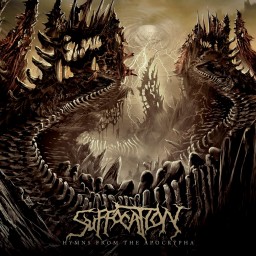
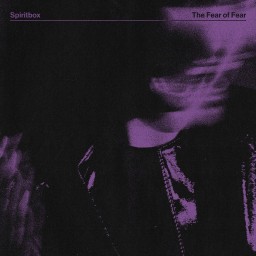

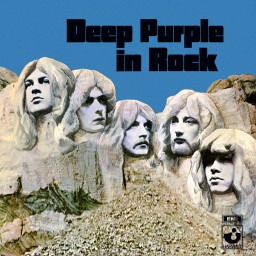
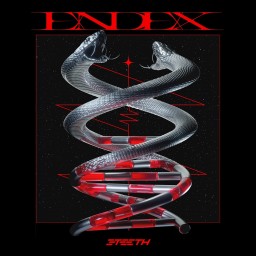
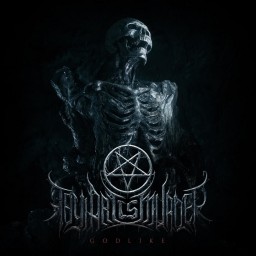
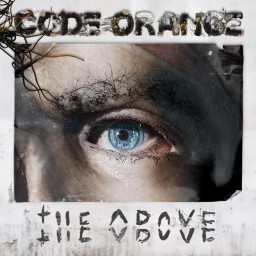
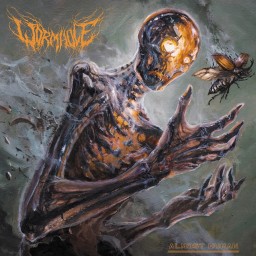
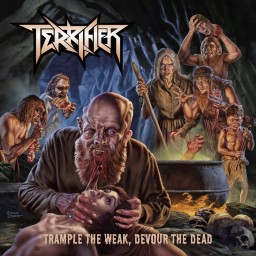
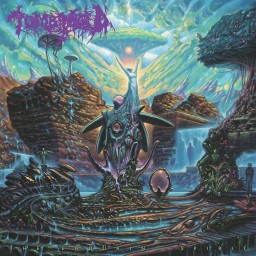

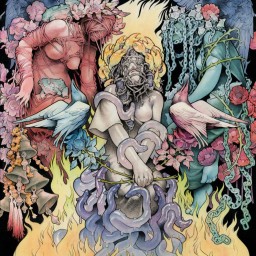
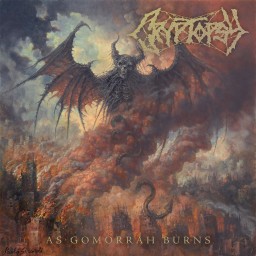
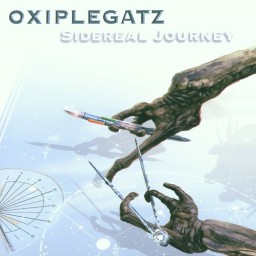
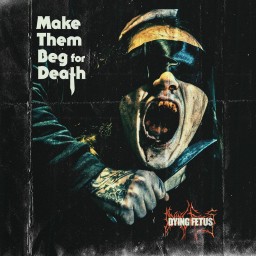
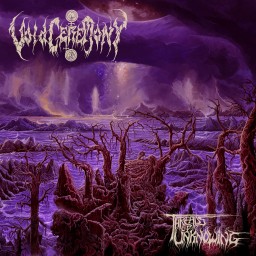

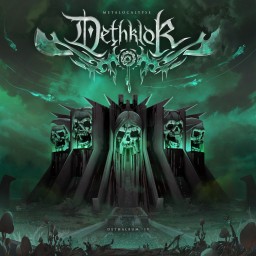
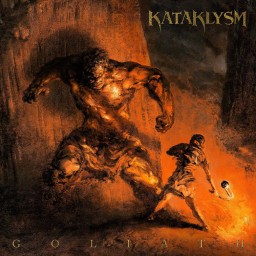
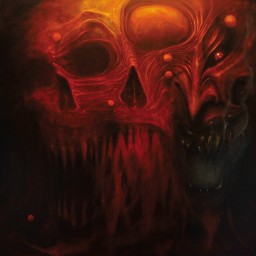
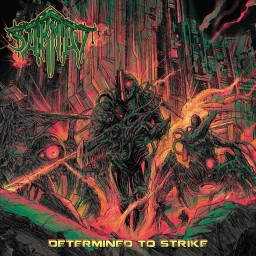
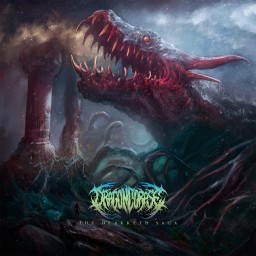
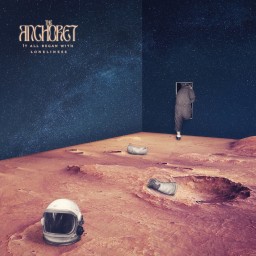
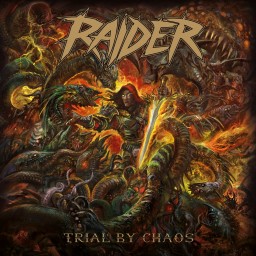
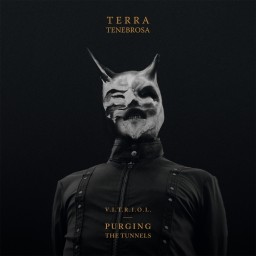
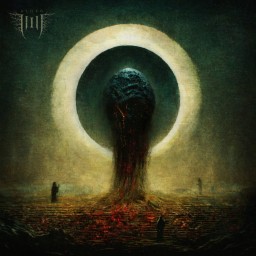
![[M]other](https://metal.academy/uploads/releases/99683968bd6e35008cd2fb70f6988c87.jpg)

